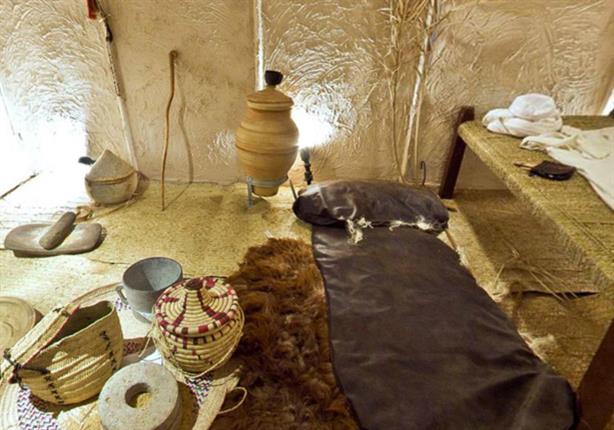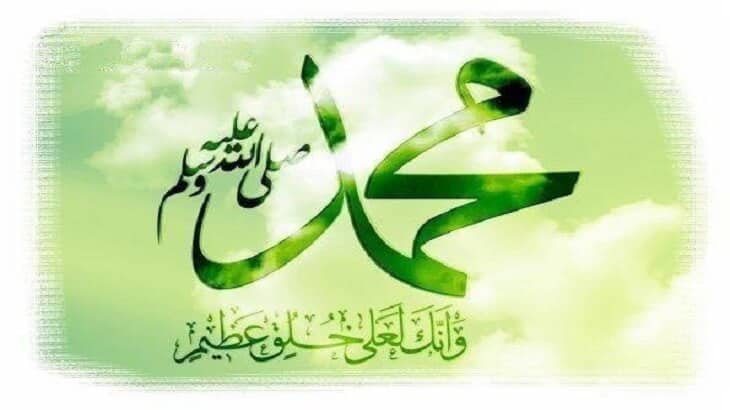Quotes about prophet Muhammed: what do they say?
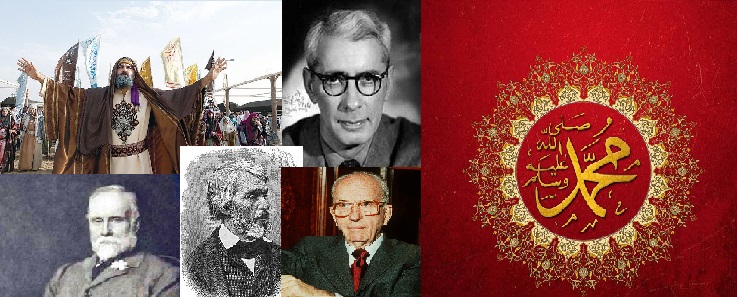
With these repeated attacks on the Prophet Muhammad(ﷺ), it is necessary to remember that man is the enemy of what he does not know! And that the majority of those who attack the Prophet (Peace be upon him) don’t know anything about his life or his noble character.
So it’s essential to tell the story of the prophet and talk about him and his values around you so that the fog of ignorance lifts and the world finally recognizes its prophet.
This article includes the testimonies of people who lived close to the Prophet Muhammad(ﷺ) and some accounts from Western intellectuals who studied his life.
In this regard, it should be noted that the Prophet Muhammad(ﷺ) did not need anyone to testify on his behalf; Allah himself testified on his behalf:
Contemporary accounts of the Prophet Muhammad(ﷺ)
Testimonials from his companions
Testimony of contemporary enemies of the Prophet Muhammad(ﷺ)
The Meccans called him “Al Amin”.
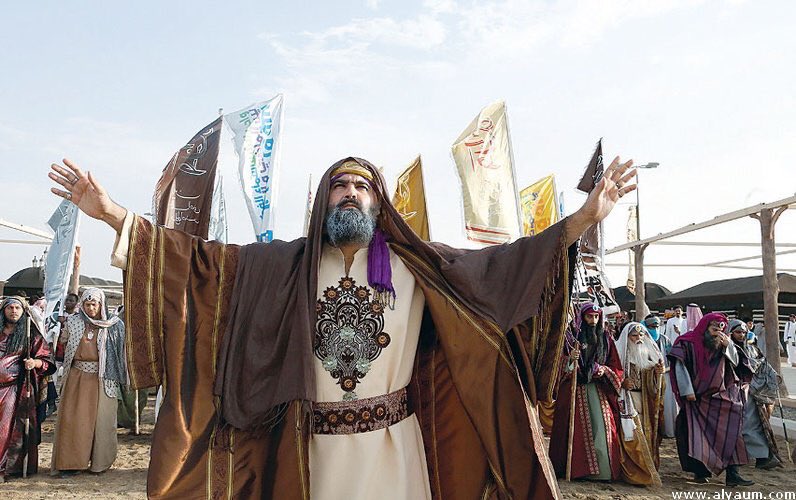
Having observed his honesty from childhood, the Meccans awarded him the title: “Al-Amin” (the Trustworthy) and chose him to entrust their precious possessions to him as a deposit. When he left Mecca to settle in Medina, he instructed Ali B. Abi Taleb to return the deposits to their owners, some of whom were among those plotting to assassinate him. Imagine the scene: they were plotting to assassinate him, yet he was the only person they trusted to guard their most precious possessions.
When he gathered the people of Makkah to tell them the message, he asked them this question: “What do you think if I tell you that the enemy is lurking behind this hill to attack us?” The pure truth, they said, “for we have never heard you utter a lie.”
Abu Jahl, his bitter enemy, testified to the Prophet’s truthfulness.
Those among the Meccans who fought him never questioned his integrity and good conduct. Abu Jahl, his most bitter enemy, repeatedly testified that Muhammad(ﷺ) could not be a liar:
On the occasion of the Battle of Badr, Akhnas bin Shariq asked Abu Jahl in private, “There is no third person here besides us two. Tell me the truth whether you regard Muhammad as a truthful man or as a liar.” He answered, “By God, Muhammad is a truthful person and has never told a lie in his life, but if Bani Qusayy, who have already the privilege of being the bearers of the national flag and the providers of water to the pilgrims and the keepers of the keys of the Ka bah, should also be acknowledged as the recipients of Prophethood, what would then be left for the rest of the Quraish?”
Hedayat Al-Hayari, p. 50, 51
Emperor Flavius Heraclius Augustus: I knew a prophet was coming, but I didn’t imagine it would be from you!
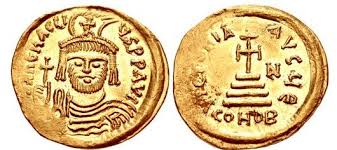
When the Prophet Muhammad(ﷺ) (PBUH) sent his letter of call to Islam to Heraclius, and he met Abu Sufiyan and talked with him about the Prophet Muhammad(ﷺ) (PBUH), Heraclius came to the following conclusion :
I asked you about his family status amongst you, and you told me that he comes from a noble family amongst you Verily, all Apostles come from the noblest family among their people. Then I asked you whether any of his ancestors was a king, and you denied that. Thereupon I thought that had one of his fore-fathers been a king, I would have said that he (i.e. Muhammad) was seeking to rule the kingdom of his fore-fathers. Then I asked you regarding his followers, whether they were the noble or the poor among the people, and you said that they were only the poor (who follow him). In fact, such are the followers of the Apostles. Then I asked you whether you have ever accused him of telling lies before saying what he said, and your reply was in the negative. Therefore, I took for granted that a man who did not tell a lie about others, could ever tell a lie about Allah. Then I asked you whether anyone of his followers had renounced his religion (i.e. Islam) after embracing it, being displeased with it, and you denied that. And such is Faith when it mixes with the cheerfulness of the hearts. Then I asked you whether his followers were increasing or decreasing. You claimed that they were increasing. That is the way of true faith till it is complete. Then I asked you whether you had ever fought with him, and you claimed that you had fought with him and the battle between you and him was undecided and the victory was shared by you and him in turns; he inflicted casual ties upon you and you inflicted casualties upon them. Such is the case with the Apostles; they are out to test and the final victory is for them. Then I asked you whether he had ever betrayed; you claimed that he had never betrayed. I need, Apostles never betray. Then I asked you whether anyone had said this statement before him; and you denied that. Thereupon I thought if somebody had said that statement before him, then I would have said that he was but a man copying some sayings said before him.” Abu Safyan said, “Heraclius then asked me, ‘What does he order you to do?’ I said, ‘He orders us (to offer) prayers and (to pay) Zakat and to keep good relationship with the Kith and kin and to be chaste.’ Then Heraclius said, ‘If whatever you have said, is true, he is really a prophet, and I knew that he ( i.e. the Prophet (ﷺ) ) was going to appear, but I never thought that he would be from amongst you. If I were certain that I can reach him, I would like to meet him and if I were with him, I would wash his feet; and his kingdom will expand (surely to what is under my feet.’
Flavius Heraclius Augustus ( Reported By Bukhari )
Testimonials from Western authors
The prophet Muhammad(ﷺ) (Peace be upon him) is undoubtedly the character who has been the most vilified in the West since the dawn of Islam, mainly by instruction from the Church, which saw Islam as an eternal enemy. So a host of lies have been drawn around the prophet Muhammad(ﷺ) (Peace be upon him); this has not stopped to this day, however.
Since the Enlightenment, freedom of thought and access to information have meant that many Western authors have become interested in Islam and the life of the prophet Muhammad(ﷺ), and those who have been objective have given justice to the prophet Muhammad(ﷺ) (Peace be upon him), here are some of their comments.
I remind you in this regard that Muslims have never needed this recognition from Western authors in order to love and imitate their prophet, it is however interesting to quote these comments in the sense of “And a witness from his family testified” (وشهد شاهد من أهلها).
Alphonse de Lamartine: Was this man an impostor? We don’t think so after studying his story.
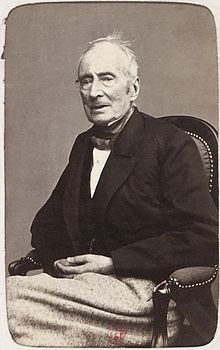
Alphonse de Lamartine, writing :
“Never has a man set for himself, voluntarily or involuntarily, a more sublime aim, since this aim was superhuman; to subvert superstitions which had been imposed between man and his Creator, to render God unto man and man unto God; to restore the rational and sacred idea of divinity amidst the chaos of the material and disfigured gods of idolatry, then existing. Never has a man undertaken a work so far beyond human power with such feeble means, for he (Muhammad(ﷺ)) had in the conception as well as in the execution of such a great design, no other instrument than himself and no other aid except a handful of men living in a corner of the desert. Finally, never has a man accomplished such a vast and lasting revolution in the world because in less than two centuries after its appearance, Islam, in faith and in arms, reigned over the whole of Arabia and conquered, in God’s name, Persia Khorasan, Transoxania, Western India, Syria, Egypt, Abyssinia, all the known continent of Northern Africa, numerous islands of the Mediterranean Sea, Spain, and part of Gaul.
“If greatness of purpose, smallness of means, and astonishing results are the three criteria of a human genius, who could dare compare any great man in history with Muhammad(ﷺ)? The most famous men created arms, laws, and empires only. They found, if anything at all, no more than material powers, which often crumbled away before their eyes. This man moved not only armies, legislations, empires, peoples, and dynasties but millions of men in one-third of the then-inhabited world; and more than that, he moved the altars, the gods, the religions, the ideas, the beliefs, and the souls.
“Based on a Book, every letter which has become law, he created a spiritual nationality which blends together peoples of every tongue and race. He has left the indelible characteristic of this Muslim nationality, the hatred of false gods, and the passion for the One and Immaterial God. This avenging patriotism against the profanation of Heaven formed the virtue of the followers of Muhammad(ﷺ); the conquest of one-third of the earth to the dogma was his miracle, or rather, it was not the miracle of man but that of reason.
“The idea of the unity of God, proclaimed amidst the exhaustion of the fabulous theogonies, was in itself such a miracle that upon its utterance from his lips, it destroyed all the ancient temples of idols and set on fire one-third of the world. His life, his meditations, his heroic revelings against the superstitions of his country, and his boldness in defying the furies of idolatry, his firmness in enduring them for fifteen years in Mecca, his acceptance of the role of public scorn and almost of being a victim of his fellow countrymen… This dogma was twofold the unity of God and the immateriality of God: the former telling what God is, the latter telling what God is not; the one overthrowing false gods with the sword, the other starting an idea with words.
“Philosopher, Orator, Apostle, Legislator, Conqueror of Ideas, Restorer of Rational beliefs…. The founder of twenty terrestrial empires and of one spiritual empire that is Muhammad. As regards all standards by which human greatness may be measured, we may well ask, is there any man greater than he?” Lamartine, Histoire de la Turquie, Paris, 1854. Tome 1 et Livre 1, p. 280.
Martin Lings: Mohammed is another reason to accept Islam
(Martin Lings (Abû Bakr Sirâj ad-Dîn) (24 janvier 1909-12 mai 2005) fut un érudit anglais musulman, spécialiste du soufisme) :
« Une autre raison d’accepter le Message [de l’islam] était le Messager lui-même, un homme qui était, ils en étaient certains, trop plein de vérité pour tromper et trop plein de sagesse pour se tromper lui-même. » Martin Lings, Muhammad: sa vie basée sur les premières sources
Napoleon Bonaparte – Quran Alone can lead men to happiness
“I hope the time is not far off when I shall be able to unite all the wise and educated men of all the countries and establish a uniform regime based on the principles of Quran which alone are true and which alone can lead men to happiness.” Napoleon Bonaparte – Quoted in Christian Cherfils BONAPARTE ET ISLAM (PARIS 1914)
Gandhi: It was not the sword that created a place for Islam in the hearts of those seeking direction in their lives.
..I became more than ever convinced that it was not the sword that won a place for Islam in those days in the scheme of life. It was the rigid simplicity, the utter self-effacement of the prophet, the scrupulous regard for his pledges, his intense devotion to his friends and followers, his intrepidity, his fearlessness, his absolute trust in God and his own mission. These, and not the sword carried everything before them and surmounted every trouble
.Gandhi (trad. Wikiquote), 11 septembre 1924, dans Young India, paru Collected Works of Mahatma Gandhi, vol.29, « My Jail experiences », p.133, Gandhi.
Edward Gibbon: the same pure and perfect impression which he engraved at Mecca and Medina is preserved
The great Western historian, Edward Gibbon observes: “The good sense of Muhammad(ﷺ) despised the pomp of royalty; the Apostle of God submitted to the menial offices of the family; he kindled the fire, swept the floor, milked the cows and mended with his own hands shoes and his woollen garments. Disdaining the penance and merit of a hermit he observed without effort and vanity, the abstemious diet of an Arab and a soldier. On solemn occasions he feted his Companions with hospitable plenty; but in his domestic life, many weeks would elapse without a fire being kindled in the hearth of the Prophet”. See the hundred muslims
He Also said :
“It is not the propagation but the permanency of his religion that deserves our wonder, the same pure and perfect impression which he engraved at Mecca and Medina is preserved, after the revolutions of twelve centuries by the Indian, the African and the Turkish proselytes of the Quran…The Mahometans have uniformly withstood the temptation of reducing the object of their faith and devotion to a level with the senses and imagination of man. ‘I believe in One God and Mahomet the Apostle of God’, is the simple and invariable profession of Islam. The intellectual image of the Deity has never been degraded by any visible idol; the honors of the prophet have never transgressed the measure of human virtue, and his living precepts have restrained the gratitude of his disciples within the bounds of reason and religion.” Edward Gibbon and Simon Ocklay – History of the Saracen Empire, London, 1870, p. 54:
Rev. Bosworth Smith : if ever any man had the right to say that he ruled by the right divine, it was Muhammad(ﷺ)
“He was Caesar and Pope in one; but he was Pope without Pope’s pretensions, Caesar without the legions of Caesar: without a standing army, without a bodyguard, without a palace, without a fixed revenue; if ever any man had the right to say that he ruled by the right divine, it was Mohammed, for he had all the power without its instruments and without its supports.” Rev. Bosworth Smith, Mohammed and Mohammadanism, London 1874, p. 92:
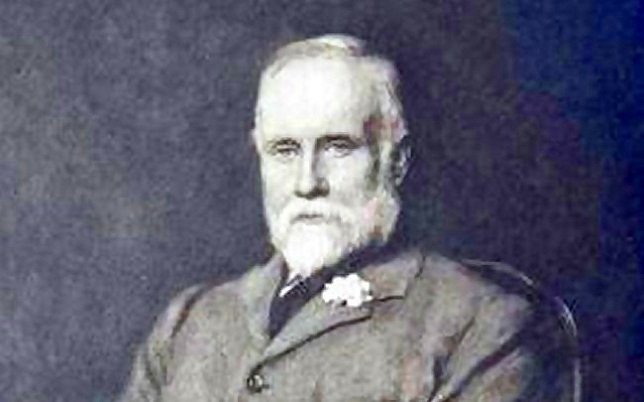
Montgomery Watt : To suppose Muhammad an impostor raises more problems than it solves:
“His readiness to undergo persecutions for his beliefs, the high moral character of the men who believed in him and looked up to him as leader, and the greatness of his ultimate achievement – all argue his fundamental integrity. To suppose Muhammad an impostor raises more problems than it solves. Moreover, none of the great figures of history is so poorly appreciated in the West as Muhammad.”
Montgomery Watt, Mohammad at Mecca, Oxford 1953, p. 52
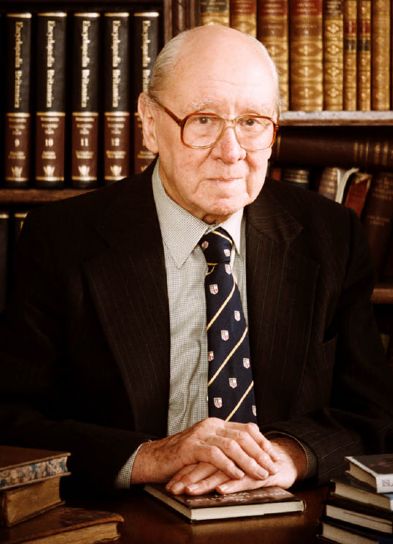
James A.Michener: In all things, Muhammad(ﷺ) was profoundly practical
“Muhammad, the inspired man who founded Islam, was born about A.D. 570 into an Arabian tribe that worshipped idols. Orphaned at birth, he was always particularly solicitous of the poor and needy, the widow and the orphan, the slave and the downtrodden. At twenty he was already a successful businessman, and soon became director of camel caravans for a wealthy widow. When he reached twenty-five, his employer, recognizing his merit, proposed marriage. Even though she was fifteen years older, he married her, and as long as she lived, remained a devoted husband.
“Like almost every major prophet before him, Muhammad fought shy of serving as the transmitter of God’s word, sensing his own inadequacy. But the angel commanded ‘Read’. So far as we know, Muhammad was unable to read or write, but he began to dictate those inspired words which would soon revolutionize a large segment of the earth: “There is one God.”
“In all things, Muhammad(ﷺ) was profoundly practical. When his beloved son Ibrahim died, an eclipse occurred, and rumors of God’s condolence quickly arose. Whereupon Muhammad is said to have announced that an eclipse is a phenomenon of nature. It is foolish to attribute such things to the death or birth of a human being.
“At Muhammad(ﷺ)’s own death, an attempt was made to deify him, but the man who was to become his administrative successor killed the hysteria with one of the noblest speeches in religious history: ‘If there are any among you who worshipped Muhammad(ﷺ), he is dead. But if it is God you worshipped, He lives forever.'”
James A. Michener, ‘Islam: The Misunderstood Religion’ in Reader’s Digest (American Edition), May 1955, pp. 68-70 .
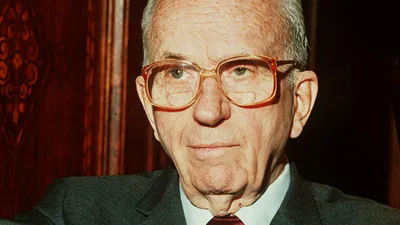
Michael H. Hart: the only man in history who was supremely successful on both the religious and secular levels.
“My choice of Muhammad(ﷺ) to lead the list of the world’s most influential persons may surprise some readers and may be questioned by others, but he was the only man in history who was supremely successful on both the religious and secular level.” Michael H. Hart The 100: A Ranking of the Most Influential Persons in History, New York: Hart Publishing Company, Inc. 1978, p. 33:
Sarojini Naidu, the famous Indian poetess, says – S. Naidu, Ideals of Islam, Speeches and Writings, Madaras, 1918
“It was the first religion that preached and practiced democracy; for, in the mosque, when the call for prayer is sounded and worshippers are gathered together, the democracy of Islam is embodied five times a day when the peasant and king kneel side by side and proclaim: ‘God Alone is Great’… “
Stanley Lane-Poole – Table Talk of the Prophet
“He was the most faithful protector of those he protected, the sweetest and most agreeable in conversation. Those who saw him were suddenly filled with reverence; those who came near him loved him; they who described him would say, “I have never seen his like either before or after.” He was of great taciturnity, but when he spoke it was with emphasis and deliberation, and no one could forget what he said…”
Thomas Carlyle: The lie fashioned with good intentions intended for this man (Muhammad(ﷺ)) dishonors only us.
“…The lies (Western slander) which well-meaning zeal has heaped round this man (Muhammed) are disgraceful to ourselves only…How one man single-handedly, could weld warring tribes and wandering Bedouins into a most powerful and civilized nation in less than two decades….A silent great soul, one of that who cannot but be earnest. He was to kindle the world; the world’s Maker had ordered so . While others wallow in formulas and hearsay, content with their lot, this man could not escape formulas. He was alone with his own conscience and the reality of things… Such sincerity, as we like to call it, actually has something divine about it. The speech of such a man is like the voice that emanates from the very heart of nature. Men listen and must listen to this speech better than any other… The rest is mere futility in comparison.” Thomas Carlyle dans « heros and Hero-Worship », p.71
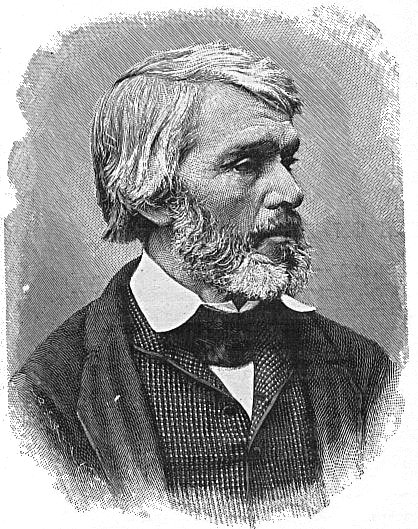
George Bernard Shaw: he deserves the title of savior of humanity
The celebrated British writer, George Bernard Shaw, in his letter to Mr.Najmi Saqib of Cyprus acknowledges that Prophet Muhammad’s (PBUH) teachings on the status of women, exposure of female children and kindness to animals, were “far ahead of Western Cluistian thought, even of modem thought”.( See Hundred Great Muslims )
“I believe if a man like him were to assume the dictatorship of the modern world he would succeed in solving its problems in a way that would bring much needed peace and happiness.
I have studied him – the man and, in my opinion, is far from being an anti–Christ. He must be called the Savior of Humanity.
I have prophesied about the faith of Muhammad(ﷺ) that it would be acceptable to the Europe of tomorrow as it is beginning to be acceptable to the Europe of today.” George Bernard Shaw – The Genuine Islam Vol.No.8, 1936.
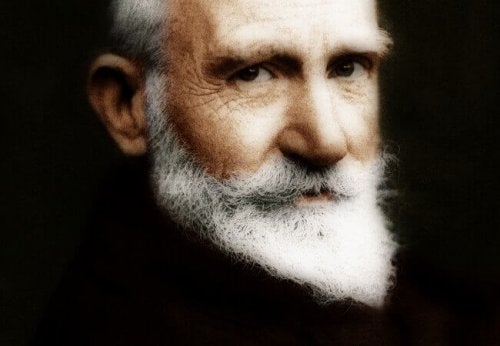
Annie Besant: one of the great Messengers of the Supreme Being
“It is impossible, for someone who studies the life and character of the great Prophet of Arabia, for someone who knows how he taught and how he lived, to have any other feeling than respect for this prodigious Prophet, one of the great Messengers of the Supreme Being. And even if his speeches contain many things that are familiar to many of you, every time I myself reread them, I feel a new wave of admiration, a new feeling of reverence, rise within me for this prodigious great Arab master.” Annie Besant, The Life and Teachings of Muhammad, Madras 1932, p. 4
Constant Virgil Gheorghiu:I congratulate Muslims on the fact that their religion has been interested in the acquisition of knowledge right from the start.
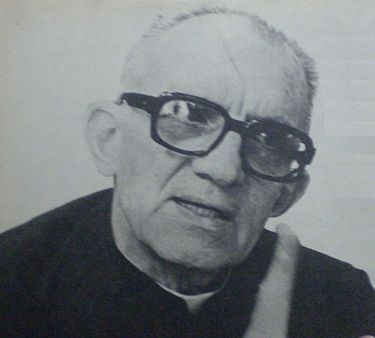
“Although he was illiterate, the first verses revealed emphasize the pen, science, education and teaching. We know of no other doctrine that was so interested in science and knowledge. If Mohammad had been a scholar, the revelation, made in the cave of Hirra” would not have caused astonishment because the scholar knows the value of science. But he was illiterate and had not learned from any master. I congratulate Muslims on the fact that their religion has been interested in the acquisition of knowledge from the very beginning, and attaches great importance to it.” Constant Virgil Gheorghiu: La vie de Mohammad “, T2,p.45
Professeur K.S.Ramakhishna Rao: le plus rare phénomène sur terre
« Le monde a vu en la personne du prophète de l’Islam, le plus rare phénomène sur terre, évoluant en chair et en os. »
Professeur K.S.Ramakhishna Rao, in le prophète de l’Islam », cité par Ahmed DEEDAT dans son ouvrage: Mohammed(ç) le plus grand.
Diwan Chand Sharma:Mohammed (Paix sur lui) était l’âme de la Bienveillance
« Mohammed (Paix sur lui) était l’âme de la Bienveillance et son influence était ressentie et jamais oubliée par ceux qui l’approchaient. »
Diwan Chand Sharma dans « The Prophets of the East », Calcutta, 1935,p.122
John William Draper :l’homme qui, parmi tous les hommes, allait exercer la plus grande influence sur la race humaine
“Four years after Justin’s death, A.D.569 was born in Mecca, Arabia, the man who, of all men, was to exert the greatest influence on the human race… Muhammad(ﷺ) (Peace be upon him).” John William Draper, M.D.LLD in “A History Of the Intellectual Development of Europ,” London, 1875
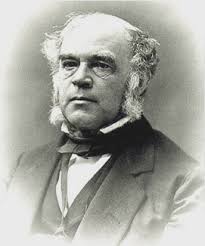
Encyclopédia Brittanica, the most successful of all religious figures
“Muhammad(ﷺ) was the most successful personality of all religious figures.” Encyclopédia brittanica, 11th edition.
Washington Irving: No pride in military triumphs
” His military triumphs awakened no pride or vain glory, as they would have done had they been affected by selfish purposes. In the time of his greatest power, he maintained the same simplicity of manners and appearance as in the days of his adversity. So far from affecting a real state, he was displeased if, on entering a room, any unusual testimonial of respect were shown him. If he aimed at universal dominion, it was the dominion of the faith; as to the temporal rule which grew up in his hands, as he used it without ostentation, so he took no step to perpetuate it in his family.” (Mahomet and His Successors Irving Washington, 1969, p. 199)
Gustave Le Bon:Muhammad(ﷺ) was one of the greatest men in history
“If we are to judge the worth of men by the greatness of the works they founded, we can say that Muhammad was one of the greatest men history has ever known. Religious prejudice has prevented many historians from recognizing the importance of his work; but Christian writers themselves are now beginning to do him justice.” La Civilisation des Arabes (1884), Gustave Le Bon, éd. La Fontaine au Roy, 1990, Livre deuxième, chapitre premier, Mahomet, p. 76
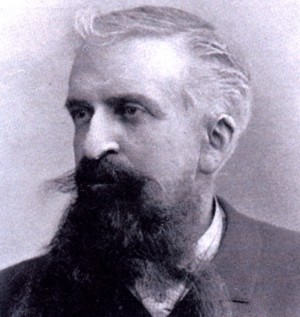
Robert Briffault The Quran is the source of the ideas of freedom and human brotherhood
The celebrated English writer Robert Briffault pays rich tributes to theteachings of the Holy Prophet of Islam, when he says:
“The ideas of freedom for all human beings, of human brotherhood, of the equality of all men before the law of democratic government, by consultation and universal suffrage, the ideas that inspired the French Revolution and the Declaration of Rights, that guided the framing of the American Constitution and inflamed the struggle for independence in the Latin-American countries were not inventions of the West. They find their ultimate inspiration and source in the Holy Quran, They are the quintessence of what the intelligentsia of medieval Europe acquired from Islam over a period of centuries through the various societies that developed in Europe in the wake of the Crusades in imitation of the brotherhood associations of Islam. It is highly probable that but for the Arabs modern European civilization would never have arisen at an, it is absolutely certain that but for them it would never have assumed that character which has enabled it to transcend all previous phases of evolution.” see : Hundred Great Muslims p:9
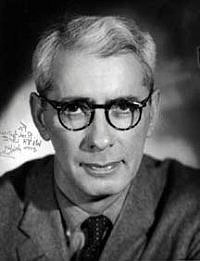
John Davenport: It is inconceivable that Mohammed is an impostor
Is it possible to conceive, we may ask, that the man who effected such great and lasting reforms in his own country by substituting the worship of the one only true God for the gross and debasing idolatry in which his countrymen had been plunged for ages ; who abolished infanticide, prohibited the use of spirituous liquors and games of chance (those sources of moral depravity), who restricted within comparatively narrow limits the unrestrained polygamy which he found in existence and practice — can we, we repeat, conceive so great and zealous a reformer to have been a mere impostor, or that his whole career was one of sheer hypocrisy? Can we imagine that his divine mission was a mere invention of his own of whose falsehood he was conscious throughout ? No, surely, nothing but a consciousness of really righteous intentions could have carried Mohammed so steadily and constantly without ever flinching or wavering, without ever betraying himself to his most intimate connections and companions, from his first revelation to Khadijah to his last agony in the arms of Ayesha. John Davenport, An apology for Mohammed and the Koran. London, 1869. Pages 138-139
Laura Veccia Vaglieri: The prophet taught right thinking, right action and right speech
Yet that is what came to pass. A solitary voice was, under Divine Command, raised in Makkah, calling men to the worship of One God and proclaiming that through responding to this call would mankind achieve true dignity, honour, prosperity and happiness both here and hereafter* That voice was the voice of Muhammad, the Prophet of Islam. Laura Veccia Vaglieri, An interpretation of Islam (1957)
Karen Armstrong : Mohammed un prophète pour notre temps
“He was decisive and wholehearted in everything he did, so intent non the task at hand that he never looked over his shoulder, even if his cloak got caught in a thorny bush. When he did turn to speak to somebody, he used to swing his entire body and dress him full face. When he shook hands, he was never the first to withdraw his own. He inspired such confidence that he was known as al-Amin, the Reliable One.”
Karen Armstrong, Muhammad: A Prophet for Our Time
Leo Tolstoy
Muhammad(ﷺ) has always been standing higher than the Christianity. He does not consider god as a human being and never makes himself equal to God. Muslims worship nothing except God and Muhammad is his Messenger. There is no any mystery and secret in it. Leo Tolstoy

